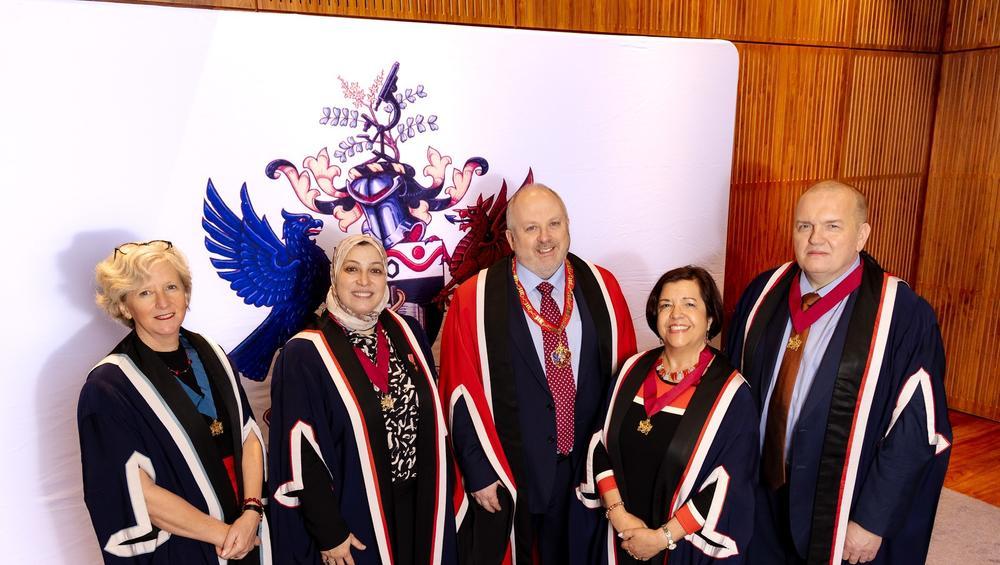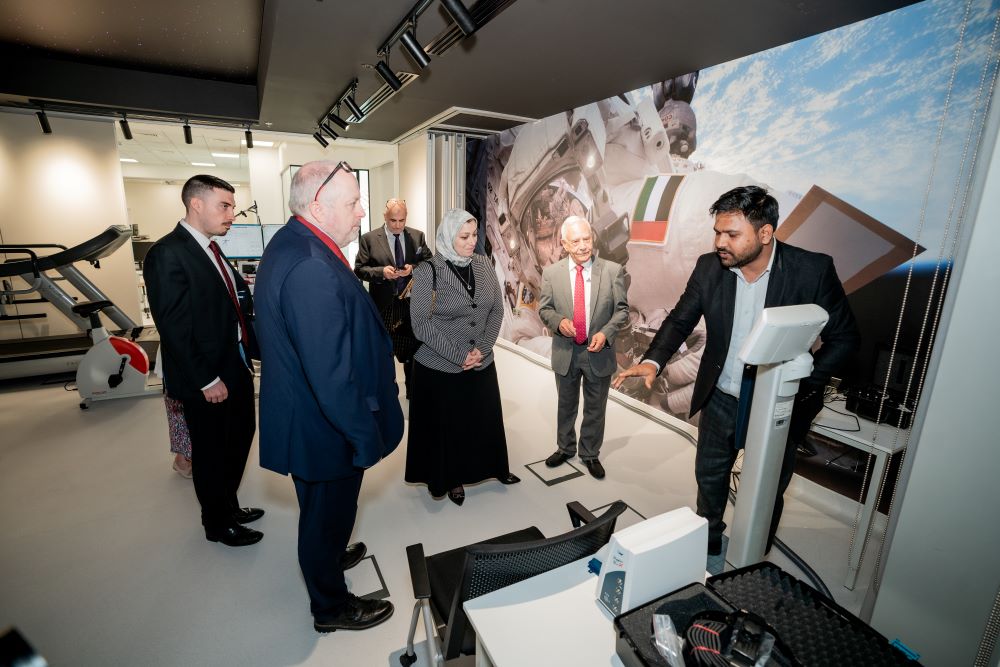- Published:
- 28 March 2024
- Author:
- Dr Bernie Croal
- Read time:
- 4 Mins

Climate change is real and is having an increasingly significant impact on temperature, weather systems and climatic events. This, in turn, can impact health, both directly, in respiratory disease or heat-related illness, and indirectly, by affecting crop yields and water availability, which can significantly affect health, disease prevalence and outcomes.
This edition of the Bulletin focuses on sustainability, with many great articles and features covering what the College is doing and also what we can do within our pathology services. Sustainability measures provide options for pathology in 3 main ways.
College efforts
Firstly, from a College perspective, we need to constantly examine how our building operates and how our practices can be modified to minimise our waste and carbon footprint. We have been working in partnership with Beyond Green Associates to assess our position and progress towards net zero. While we have a modern, very energy-efficient building, there are still many things we can do as we look towards a net zero target.
Lab practices
Secondly, we must improve how our laboratories function – internal practices, waste, packaging, paper use, energy consumption, recycling and people (including transport and remote working). We have been collaborating with other professional bodies, NHS England and some of the existing sustainability accreditation services. Following the 'How Green Is Your Lab?' meeting hosted at the College in November 2023, the group has continued to meet with guidance and recommendations likely to be developed in the near future.
Healthcare services
Thirdly, perhaps most importantly, is the wider environmental impact of our services. 1.5 billion blood tests per year, for example – do we need them all? The entire sample pathway needs to be examined with a view to optimising appropriate testing. The College, working in collaboration with colleagues across the Pathology Alliance, will soon be developing a new Diagnostic Stewardship Programme that will create best practice guidance to promote appropriate requesting and standardised internal laboratory processes.
Sustainability will, of course, be part of College strategy, but there will be other, key priorities. Developing our strategy over the next few months, we are keen to ensure we focus not just on the business-as-usual work, but also target things that are important to our members and pathology services. Workforce issues are top of that list, but expanding and more complex workloads will also be the denominator in this.
Retention and reform will be the main focus – not because training more pathologists and scientists isn’t important, but because funding for such increases is unlikely in the short term. So, the impact of better IT – laboratory information management systems, order comms, automation, standardised coding, digital imaging and, ultimately, artificial intelligence – will enable our services to transform and allow us to make the most of existing staff.
Other strategic areas under consideration include plans to expand our interaction and collaboration with industry partners on areas such as innovation, implementation, research, consulting and lobbying. We are also looking at ways to better involve younger fellows and trainees in the work of the College so that they have a more direct say in how it is run and can contribute directly to the work and output of the College.
This continues to be a fantastic asset for the College. As well as being an enviable place to host scientific meetings, examinations, Trustee Board, Council meetings, new Fellow ceremonies and other College events, it is extensively used by external organisations and commercial companies for meetings, conferences, receptions and dinners. The building has recently been used as a film location by the BBC, Netflix and TV advertising companies. All of this means significant additional income for the College that we can then reinvest in College activities.

I was delighted to attend the MedLab Middle East meeting in Dubai in February and deliver a keynote talk on the importance of diagnostic stewardship. The College International team also hosted a College stand and a workshop, with other College fellows delivering presentations as well. We were also able to visit the Mohammed Bin Rashid University to resign our memorandum of understanding, and visit Pure Lab, a local pathology service provider.

Across the College, we have a vast array of oversight and specialist committees that all contribute a huge wealth of knowledge, content and guidance. Over 95% of College committees now meet online only, reducing costs for the College and helping maintain our sustainability credentials. We are, however, looking to increase the number of committee meetings, extend their times and increase the number of members.
This is all to ensure we have adequate time to discuss, absorb and deliver against the challenges pathology faces – challenges that are directly relevant to the professional and personal wellbeing of our members, their services and, ultimately, patient care. Please consider joining and contributing to some of this work – we need you all.
I chaired my first Council meeting recently, expanded to morning and afternoon sessions, with the former devoted to discussion around topical issues – on this occasion, College strategy and physician associates.
We invited the President of the Faculty of Physician Associates, Jamie Saunders, who explained the details around physician associates and some of the recent problems, and then took some tough questions from Council members. The medical profession remains hugely concerned around the physician associate role and the way it has been operating in some areas.
Sorting this out and addressing the issues through calm and logical dialogue is the way we do things – not tearing each other apart on subjective details. This , not only isolates the medical profession but invites unprofessional personal attacks that are unwarranted and unhelpful. The situation with physician associates needs sorting and it is sortable. The medical professions need to unite and tackle this systematically and without prejudice.
The College will continue to engage and contribute to the dialogue needed. We are fortunate in that, over decades, we have developed appropriate ways of working across disciplines and with diverse staff groups. This ensures that appropriate regulation, training, assessment, supervision, competency, scope and oversight are firmly in place to allow pathologists, clinical scientists and biomedical scientists to work together with the overlap in skills and tasks that is appropriate and safe for patient care.
We are facing a workforce crisis like never before – appropriate, safe teamwork is vital to help maintain our services.
Return to April 2024 Bulletin homepage

![Scientists and climate change_shutterstock_1846715476 [Converted].jpg](https://www.rcpath.org/static/d867d9de-e894-4b66-8761f23e4924ea3f/4a33a18c-120d-40f7-ab9bb5a291e8d80f/resourcegridlistingimage_4c16431ecd2db7799cff8fa0bb3a32cb_4a7c7e45a350/Scientists-and-climate-changeshutterstock1846715476-Converted.jpg)

